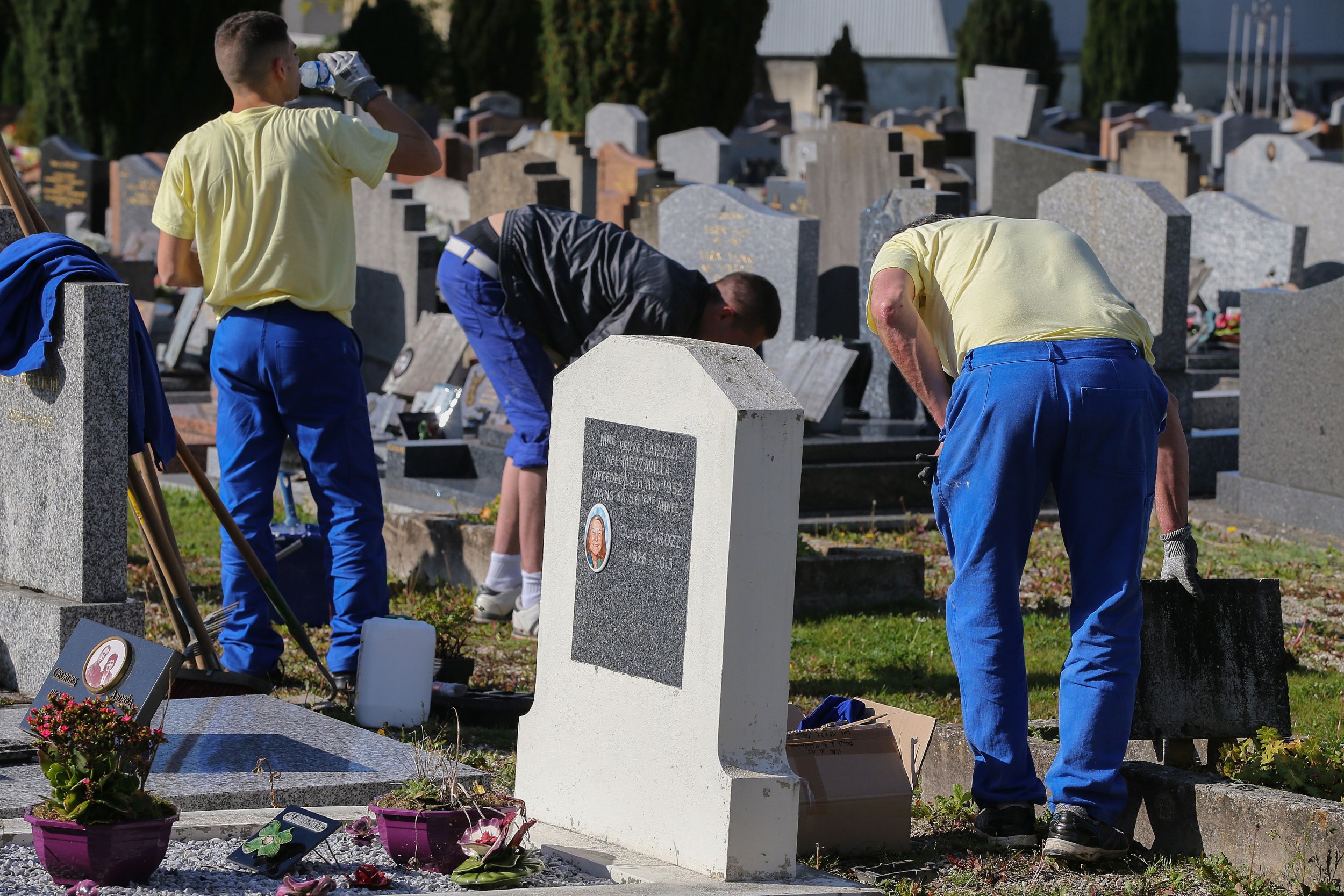
When it comes to handling a dead body, the two options have long been burial (whether at land or at sea) or cremation. But starting in 2020, Californians will have a third option: water cremation.
The eco-friendly burial method—technically known as 'alkaline hydrolysis''—is becoming more common in the United States. On Sunday, California Governor Jerry Brown signed a bill that will legally recognize the process. The end-of-life method is similar to cremation and involves turning human remains into tiny pieces of bones.
"Alkaline hydrolysis uses water and an alkali solution of potassium hydroxide (KOH) commonly found in household products, which when heated, dissolves the body, leaving behind bone fragments and a sterile liquid," the Funeral Consumers Alliance of Minnesota explains on their website.
California is the 15th state to allow funeral homes to conduct water cremation. Those who support the controversial bill cite how environmentally conscious the process (often referred to as "green cremation") is compared to cremation. As of 2015, cremation is more popular than burial in the United States, according to the National Funeral Directors Association.
"Cremation is really what people hold up as the environmentally friendly option," Caitlin Doughty, a Los Angeles-based mortician, told KQED. "It's better than the whole rigmarole of formaldehyde and chemicals and big caskets that go into the more traditional funeral industry, but it still releases mercury into the air, and it uses a whole ton of natural gas."
A typical cremation of a single body requires enough gas to fill two entire SUVs, according to The Atlantic. Others who support the bill cite cost effectiveness.
Assemblyman Todd Gloria—who sponsored the bill—believes people should have choices beyond the available options. "It was definitely new to me," Gloria told The New York Times. "I think like most people I don't talk a lot about death. I don't think about it a great deal; I probably shy away from it. But when the concept was brought to me, of course I needed to understand it better."
The procedure is yet to be widely accepted. In New York state, a similar bill from nearly a decade ago was branded 'Hannibal Lecter's bill,' according to the Associated Press. "We believe this process, which enables a portion of human remains to be flushed down a drain, to be undignified," said Patrick McGee, a spokesman for the Roman Catholic Diocese of Manchester, told the AP in 2008.
With more states embracing water cremation, urns for holding the tiny bones of your deceased love one could be the next addition to the mantelpiece.
Uncommon Knowledge
Newsweek is committed to challenging conventional wisdom and finding connections in the search for common ground.
Newsweek is committed to challenging conventional wisdom and finding connections in the search for common ground.
About the writer
To read how Newsweek uses AI as a newsroom tool, Click here.








